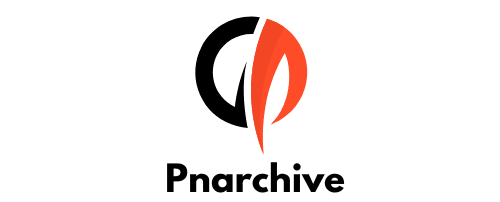Keys to an effective professional network

A thriving professional network is a valuable asset in the modern business environment. It is a system of interconnected individuals sharing mutual benefits, and it can prove crucial to your career. In this article, we’ll guide you through the process of developing and maintaining your professional network. We’ll provide tips and strategies, helping you unlock the potential of your professional relationships. There’s no time like the present to start or rejuvenate your network.
Understanding the Power of Networking
The first step to an effective professional network is understanding its importance. The impact of networking is extensive, with benefits ranging from career opportunities to personal growth.
Have you seen this : The power of data in business decision making
Networking connects you with industry professionals, potential mentors, and individuals who could become essential connections in your career. It can open doors to job opportunities you might not find on job boards. A strong network will also provide you with a wealth of knowledge, giving you insights into industry trends and helping you pick up new skills.
Networking isn’t just about taking, but also about giving. It allows you to help others by sharing your experiences and knowledge. This reciprocal relationship builds trust and strengthens your connections.
Also read : What Are the Essential Steps for Creating an Impactful Digital Brand?
Building Your Network
Building your network isn’t an overnight process; it takes time and dedication. However, there are several strategies you can employ to start forging meaningful connections.
Firstly, start by leveraging your existing contacts. Friends, family, colleagues, and classmates can all form the foundations of your professional network. Reach out to these individuals, express your career aspirations, and see if they can introduce you to relevant people.
Secondly, take advantage of social networking platforms. LinkedIn, for example, is a powerful tool for professional networking. Create a strong, comprehensive profile, join relevant groups, and participate actively in discussions.
Thirdly, attend industry events, seminars, and conferences whenever possible. These venues provide an excellent opportunity to meet like-minded individuals and create lasting impressions.
Nurturing Your Connections
Once you’ve started building your network, it’s vital to nurture your connections. Networking isn’t a one-time event but a continuous process.
Firstly, don’t let your relationships go cold. Regularly catch up with the people in your network, inquire about their work, and show genuine interest in their lives.
Secondly, be of help whenever you can. The principle of give-and-take holds true in networking. If you help others, they will be more likely to help you in return.
Lastly, keep in mind that not all networking has to be formal. Casual interactions, such as coffee meetings or social events, can also help to strengthen your relationships.
Leveraging Your Network
Now that you have a solid network, it’s time to leverage it to your advantage.
One way to do this is by seeking advice or insights. If you’re facing a professional challenge, don’t hesitate to reach out to your connections for suggestions.
Another way to leverage your network is by exploring job opportunities. Connections often have access to information about job openings that are not advertised publicly.
Finally, remember that your network can also serve as a sounding board. If you’re considering a significant career move or decision, getting feedback from your network can provide valuable perspectives.
Avoiding Common Networking Mistakes
While networking offers many benefits, it’s also essential to avoid common pitfalls.
Firstly, don’t view networking merely as a transaction. People can tell if you’re only interested in what you can gain from them, and this approach can damage your relationships.
Secondly, remember that quality trumps quantity. It’s better to have a few strong, meaningful relationships than a large number of shallow ones.
Lastly, don’t forget to follow up. After you meet someone, reach out to them within a few days to express your interest in staying in touch.
In conclusion, an effective professional network is a powerful tool in the business world. By understanding its importance, actively building your network, nurturing your connections, leveraging your network effectively, and avoiding common mistakes, you can unlock the full potential of your professional relationships. Remember, the key to successful networking lies in reciprocity and genuine interest in others.
The Role of Social Media in Professional Networking
In the age of digital communication, social media has become a powerful tool for professional networking. LinkedIn, for instance, is a platform designed specifically for professional connections. However, other social media platforms, such as Twitter, Facebook, and even Instagram, can also be used effectively for networking purposes.
Leveraging social media for your professional network involves more than just adding connections. It’s about creating engaging content, participating in discussions, and showing genuine interest in others’ work. It’s about using these platforms to not only showcase your skills but also to learn from others.
Remember, the aim is to foster mutually beneficial relationships. So, when you connect with someone on LinkedIn, for instance, don’t just send out an automated message. Personalize your interactions. Show that you’ve done your homework by referencing their work or something specific in their profile. This will not only make you memorable but also show that you value the connection.
Similarly, Twitter can be an excellent platform for staying up-to-date with industry trends and engaging with thought leaders. By actively participating in relevant conversations, you can grow your professional presence and meet people who can contribute to your career development.
Finally, consider the potential of networking events announced on social media. These can range from webinars, online conferences to in-person meetups. Attending such events will help you meet like-minded professionals and potentially land a remote job or in-person position in your field.
The Art of the Elevator Pitch in Professional Networking
An essential skill in effective networking is the ability to succinctly communicate who you are, what you do, and what you’re looking for – the elevator pitch. The idea is to be able to deliver this information in the time it takes to ride an elevator, typically 30 seconds to 2 minutes.
Having a strong elevator pitch will help you make the most of your interactions at networking events. It should be brief yet impactful, clearly outlining your skills, experiences, and goals. It should intrigue the listener and prompt further conversation.
Remember, the aim is not to boast about your accomplishments, but to convey your value and how it can benefit the listener. It’s not a sales pitch, but a quick introduction meant to start a conversation. Also, practice makes perfect. Rehearse your elevator pitch until it comes naturally and can be adjusted to suit different situations or people.
Moreover, your elevator pitch is not just for in-person interactions, but also for social media. Your LinkedIn headline and summary, for instance, serve as your digital elevator pitch. Make sure they accurately reflect your professional identity and aspirations.
Finally, remember to always have your business cards on hand. These tangible pieces of your professional identity are a way to stay in touch after a networking event. They should be professional, featuring your contact information and, ideally, a link to your LinkedIn profile or professional website.
In Conclusion: The Power of Effective Networking
In the vast landscape of the business world, a robust professional network is your compass, guiding you towards opportunities and offering support in your career journey. The process of building and sustaining this network requires understanding, effort, dedication, and a genuine interest in others.
Networking is not just about job search; it’s about learning, growing, and contributing to your field. It’s about fostering relationships that are not merely transactional but mutually beneficial. Whether face-to-face at networking events or through social media, every interaction is an opportunity to refine your skills, share expertise, and broaden your perspective.
By embracing effective networking tips, avoiding common mistakes, and leveraging tools like a carefully crafted elevator pitch, business cards, and social media, you can unlock the potential of your professional network. Spearhead your career development by investing in meaningful professional relationships today. Remember, in the realm of professional networking, "The currency of real networking is not greed but generosity" – Keith Ferrazzi.
